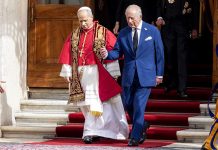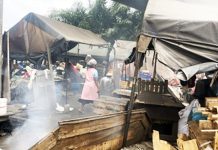We know the country we do not want. We do not want a nation where economic institutions favour the wealthy and political insiders at the expense of everyone else, and where the government controls many aspects of life, including employment, wages, production, and personal choices. When the state manages the economy, political elites gain significant power over resources and wealth. This leads to corruption, as those in power use their positions to enrich themselves while suppressing free speech.
To those who say Ghanaians suffer from a national “malaise” of indiscipline and corruption, we respond: The only malaise in this country is found in the leadership of the country, at the Presidency, in Parliament, and in political parties. Its symptoms are policy reversals, upholding contracts, and an unpredictable investment environment where even local investors are discriminated against. This malaise makes long-term planning difficult.
Sadly, some voices seem hesitant to discuss persistent high levels of corruption and crime, instead choosing to exploit them, which makes resource allocation more partisan, less efficient, and more unpredictable. We hear a lot about political power in this country. After sixty-eight years, conflicts over institutions continue; outcomes depend on who wins the struggle for political power.
Partisan administrative barriers, fueled by political displays of power, prevent most potential Ghanaian investors from participating. Lengthy approval processes for permits and licenses, along with opaque government procedures rooted in partisanship, discourage both local and foreign investment.
The case against big government is stronger than ever. A defense of the individual against government has never been more needed. Ghana must develop. However, first, we must eliminate specific institutional patterns that have been detrimental to economic growth, contributing to economic stagnation and political instability as we strive for the benefits of political power.
What we want is a country governed by the rule of law, where citizens have the right to hold politicians accountable and remove those who use their power to profit while others are left out; a country where the State serves the people, not rules over them. They are the core of a free people and a free economy. And on that freedom, all other freedoms depend.
We want economic growth, not only because it safeguards our liberties but also because it is the best way to create wealth and prosperity for individuals. It is individual initiative and creativity, rather than government actions, that drive the growth of a thriving economy and provide the prosperity necessary for better services within the community, especially for those in need.
Unfortunately, under the current partisan dispensation, entrepreneurs face huge barriers. These barriers include a lack of inclusive economic institutions. Ghana does not have inclusive economic institutions; businesses thrive or collapse depending on which regime is in power. A business person who expects his business to go down when the next regime takes over finds little incentive to undertake further investments and innovation. Inclusive economic institutions require secure property rights and economic opportunities for all, despite political affiliations.
Our development is not guaranteed. Either of the two major parties could win an election, as we have seen since Jerry John Rawlings in 1992. And if they do, they do everything possible to ensure a partisan takeover of the economy. Since 1992, we have seen that rules do not always matter. Norms do not always matter. The Constitution does not always matter. Our politicians abandon the mechanics of democracy, even as they claim to be protecting it, to strengthen their hold on power. And that is very dangerous.
Ghanaians inherently possess dignity. Our traditional values and culture expect everyone to work, serve themselves, and bring honor to the community. Hard work, human dignity, cooperation, and property ownership are core principles in traditional approaches to addressing poverty and alleviation. Those with more give generously to the vulnerable, and the vulnerable can contribute productively if they are able. All these happened without any coercive community programmes.
We must act today to preserve the Ghana we envision tomorrow. Change the Constitution. Reduce the number of parliament members. Reconsider the Supreme Court. Protect property and individual rights. Strengthen law and order. Uphold the principles of multi-party democracy and free speech.
Let us all recognize this. Stop the bureaucratic behemoth that treats individuals as generic, which they are not. It destroys families, discourages progress in Ghanaian productivity, and fosters poverty.
By Kwadwo Afari









